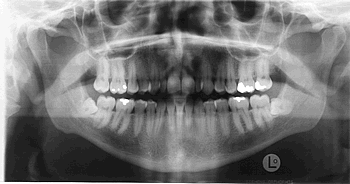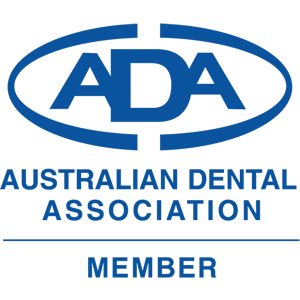Wisdom teeth

About Wisdom teeth
What problems can wisdom teeth cause?
Looking after wisdom teeth
How will my wisdom teeth be removed?
After removal of my wisdom teeth
How do I know if my wisdom teeth need to be removed?
How does the dentist know if your wisdom teeth need to be removed?
What age should I be when my wisdom teeth are removed?
Are there any risks with removing wisdom teeth?
- Typically wisdom teeth start to erupt, or grow into the mouth, in people aged between 16 years to 26 year olds. They derive their name "wisdom teeth" from this being the time of the "getting of wisdom" as you progress from "youth" to "adulthood".
- Wisdom teeth are the third of the molar series of teeth to grow in your mouth (the first molars grow when you are about 6 years and the second molars grow when you are about 12 years old). There is four wisdom teeth in total. Two upper wisdom teeth and two lower wisdom teeth. The total number of teeth in the mouth is 32.
- Sometimes wisdom teeth are missing from the mouth because they remain under the gums. A radiograph or x-ray will show whether the tooth is actually missing altogether or just remaining within the jaw bones.Sometimes they do not form at all.
What problems can wisdom teeth cause?
- Unerupted wisdom teeth: These are teeth that have not grown into the mouth. Usually when teeth don't grow into the mouth it is because they don't have enough room to fit in.
- Cyst formation: A totally unerupted wisdom tooth may be surrounded by fluid. A cyst can form and this may damage adjacent teeth, the jaw and nerves. Often the only way this problem is detected is by radiographs (x-rays).
- Pain :As the wisdom teeth move through bone and gum to their final position people may experience some degree of pain or discomfort. This can be due to infected gums or may be part of the normal process of eruption.
- Infected gums: A tooth that has partially broken through the gums allows bacteria to enter the area around the crown of the tooth. Bacteria can breed and cleaning this area can be nearly impossible. This condition is known as "pericoronitis" ( infection around the crown).
- Decay: A tooth that is partially covered by gum may get decay. This decay may be hard to treat.
- Crowding: Wisdom teeth may not have enough room to come into the mouth in a good position for cleaning and eating. Sometimes they come through at strange angles and may cause uneven wear on other teeth. Sometimes dentists and orthodontists feel that removing the wisdom teeth early may eliminate the potential for wisdom teeth to cause crowding.
Looking after wisdom teeth
Regular dental checkups
Good brushing
Chlorhexidine mouth rinse in mild infection in gums
"Teething gel" if gums are sore during eruption
Beware of popcorn and apple peel when teeth are not totally erupted
How will my wisdom teeth be removed?
Depending on your health and the position of the teeth you may have numerous choices.
- Local anaesthetic - this involves injections and is probably the most inexpensive of the methods of removing teeth. It is generally not used where the procedure is difficult or very long.
- Local anaesthetic and some form of relaxation. (Ask us if you are interested in knowing more)
- General anaesthetic - you will not be awake for the removal of wisdom teeth by this method. This is often the method used when 4 wisdom teeth need removal. This procedure is usually done as a day procedure. You will be asked to fast (not eat or drink) for a time before the surgery ( usually 6 hours - but we will give you specific instructions). You need to be driven home after the general anaesthetic by someone else after recovery. Please ask us about the advantages and disadvantages of a general anaesthetic for your particular teeth.
Depending on the difficulties in taking out your wisdom teeth we will advise you as to whether we are able to take them out or if you need to see an Oral Surgeon. Oral Surgeons are dentists who have undergone special training in this area. They may also have a medical degree.
When you attend an Oral Surgeon the initial appointment will be to assess your teeth and health and then advise you on the options you have and the cost involved.
The Dental Board of Australia does require us to warn you that having wisdom teeth out can be a surgical procedure and hence involves risks.
The Dental Board of Australia suggests that you should be warned to seek a second opinion from an appropriately qualified health practitioner before proceeding with any surgical procedure.
After removal of the teeth
It is normal to have some initial swelling and pain (called discomfort by us!) after surgery to remove teeth. If we have advised you to take any medication please do so to minimise your discomfort. You should also take the following sensible advice: -
- Rest at home.
- You may need to take time off work or school to recover. It is wise to plan to have a few days at home after surgery.
- Swelling and pain may be relieved by ice packs.
- You may be prescribed anti-inflammatory drugs, pain relieving medications and antibiotics if necessary. Some pain killers affect blood clotting and should not be taken after tooth extraction.
- Avoid alcohol on the day of the surgery. Alcohol shouldnt be taken with certain antibiotics and should not be taken with pain killers.
- Drink lots of liquids so you don't get dehydrated but be gentle so you don't wash away the blood clot that forms where the teeth has been removed.
- Eat soft foods for a few days while your jaw recovers.
- Call us or the Oral surgeon if you have fever, severe pain, excessive bleeding or swelling or any reaction to your medications.
How do I know if my wisdom teeth need to be removed?
You may experience pain or difficulty in opening your mouth or even swelling at the back of the jaw.
You may however have no pain and it is possible to develop bone loss without being aware of problems
The best thing is to come in for regular check up and x-rays.
How does the dentist know if your wisdom teeth need to be removed?
Often as the wisdom teeth start to erupt the dentist can see enough of the teeth to tell if it is going to come through into a useful position or if it is just going to be a problem. This can mean that the wisdom teeth can be removed before they cause problems.Often the dentist will need radiographs (x-rays) to see the wisdom teeth and decide whether they are likely to cause problems.

This radiograph is called an "OPG" and is commonly used to assess wisdom teeth because is shows the root within the jaw.
Lower impacted wisdom teeth are seen on this x-ray.
Sometimes the advice from the dentist will be "wait" and "watch" because the teeth may be close to the correct position to fit in the mouth.
What age should I be when my wisdom teeth are removed?
Often orthodontists will want wisdom teeth removed to prevent the possibility of them interfacing with the teeth straightening they have undertaken.
Your dentist may also feel this is an important consideration in your mouth.
Between the ages of 17 and 24 would be "typical" to have wisdom teeth removed.
At a younger age it may be difficult to remove the wisdom teeth because they are imbedded deep within the jaw bones and as we get older our jaw bones becomes more dense making removal and healing a greater problem.
Are there any risks with removing wisdom teeth?
With any treatment there are risks.
- Anaesthetic problems. General anaesthetics, while very safe today, are not without risks. If you have ever had an allergic reaction to an anaesthetic or any medication please let us know.
- Bleeding problems. Again this is rare but a possibility. Normally stopping all activity and siting down (not lying) and applying pressure to the area by gently biting on a gauze pack for 15 minutes will generally stop bleeding. Dont keep removing the pack to see if bleeding has stopped.
If, after 15 minutes, bleeding has not stopped please contact us. - Dry Socket. After a tooth is removed exposed bone quickly gets covered with a blood clot. If this clot does not form properly or gets washed away you will experience a constant throbbing pain that will last for days. If you do experience pain like this please contact us. Usually we apply a medicated dressing to the bone socket to help relieve the problem. Remember prevention is better than cure and please:
- Dont rinse or spit with force for the first 24 hours after surgery as this may loosen the clot.
- DONT smoke for two weeks after the surgery ( and if you stop for that time you may as well give up altogether!). Smokers are more likely to get dry sockets.
- Numbness. Nerves near the wisdom teeth may be damaged during the removal of the wisdom teeth. This may lead to tingling or numbness which usually disappears over a few weeks as the nerve recovers. In rare cases the nerve may not heal.
- Infection. This is rare but if you develop a fever, bleeding or increasing pain this may indicate an infection so please contact us.
While there may be risks in wisdom teeth removal we will endeavour to give you the best advise for your mouth and this may be removal of your wisdom teeth although arent aware of any problems with them.
Please discuss with us your concerns and we will be happy to advise you.







